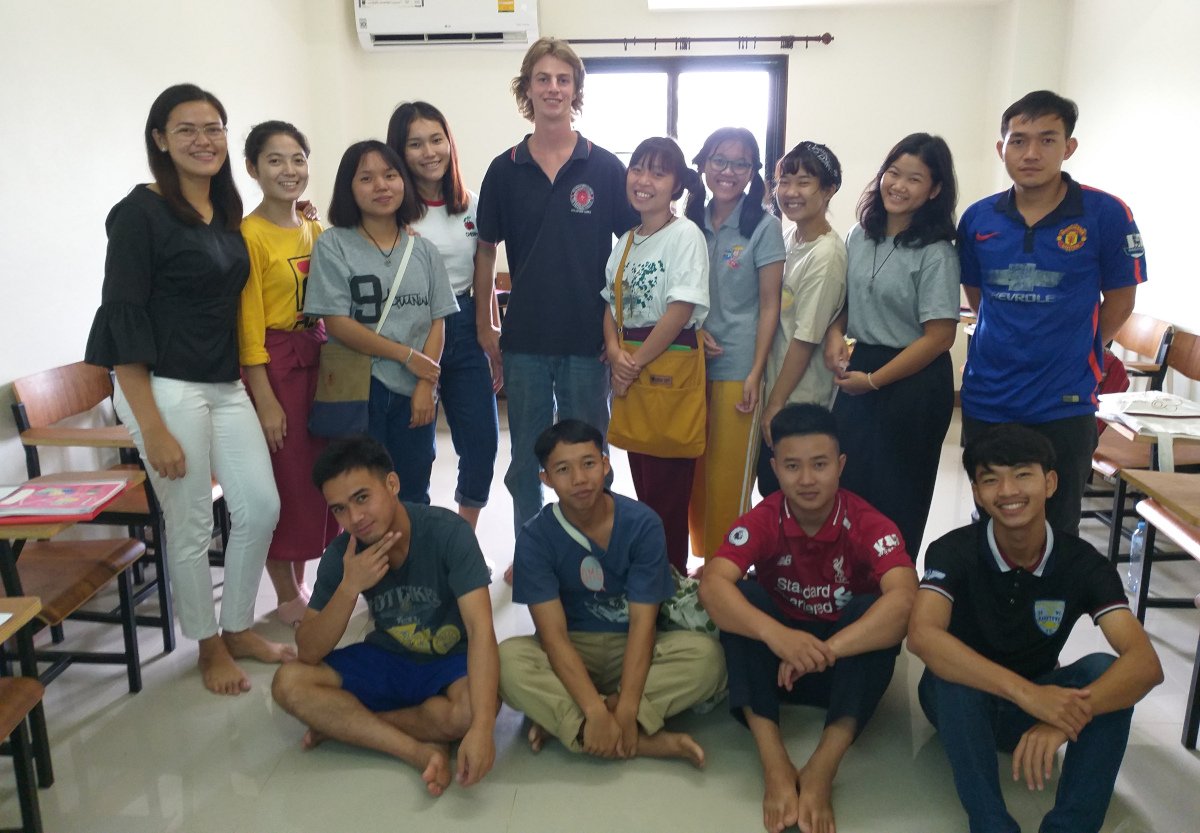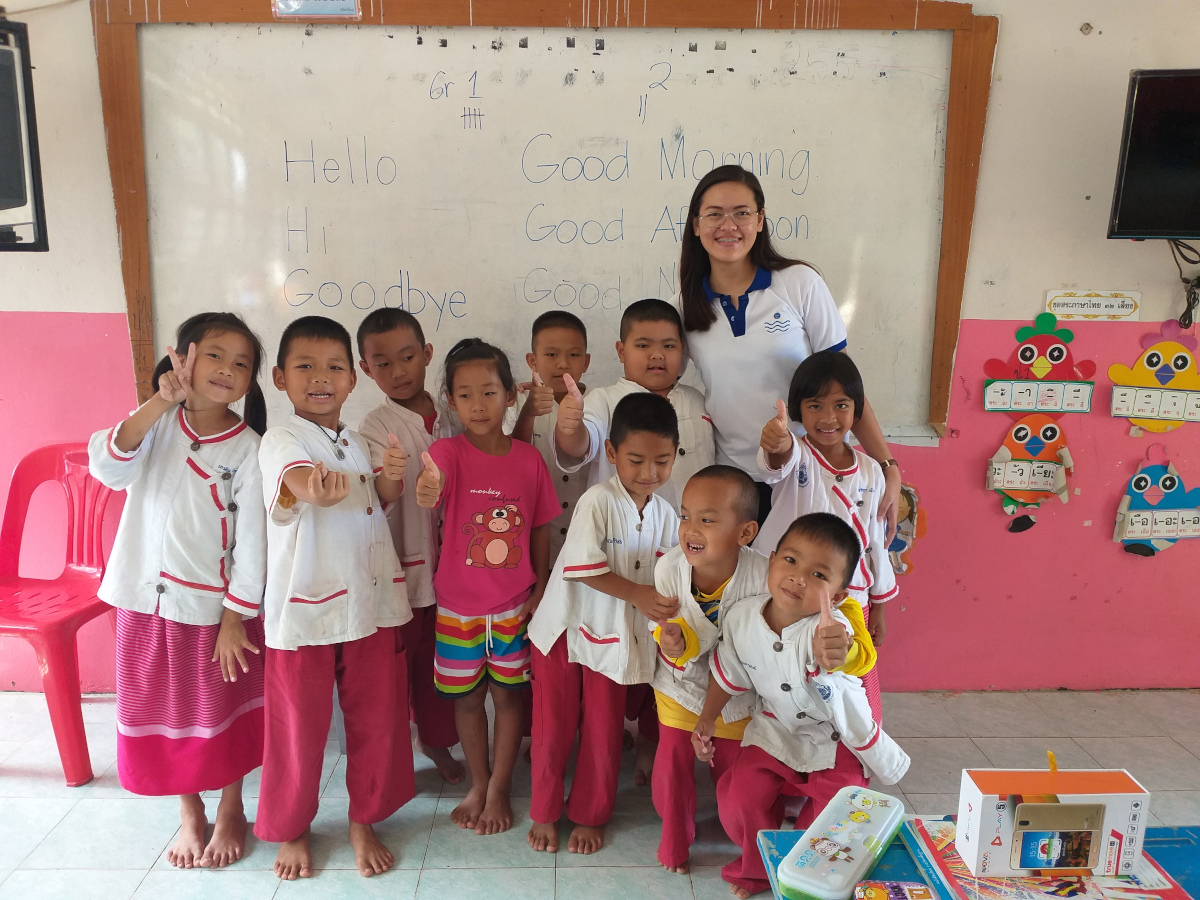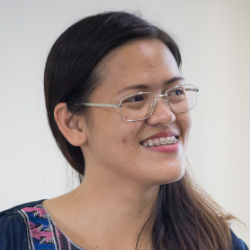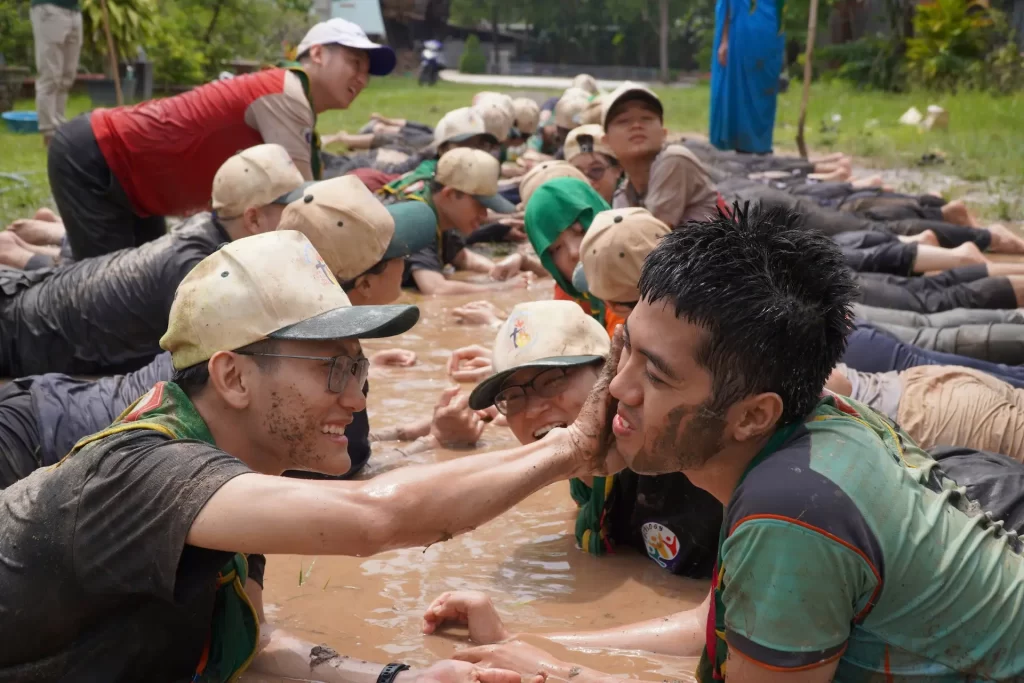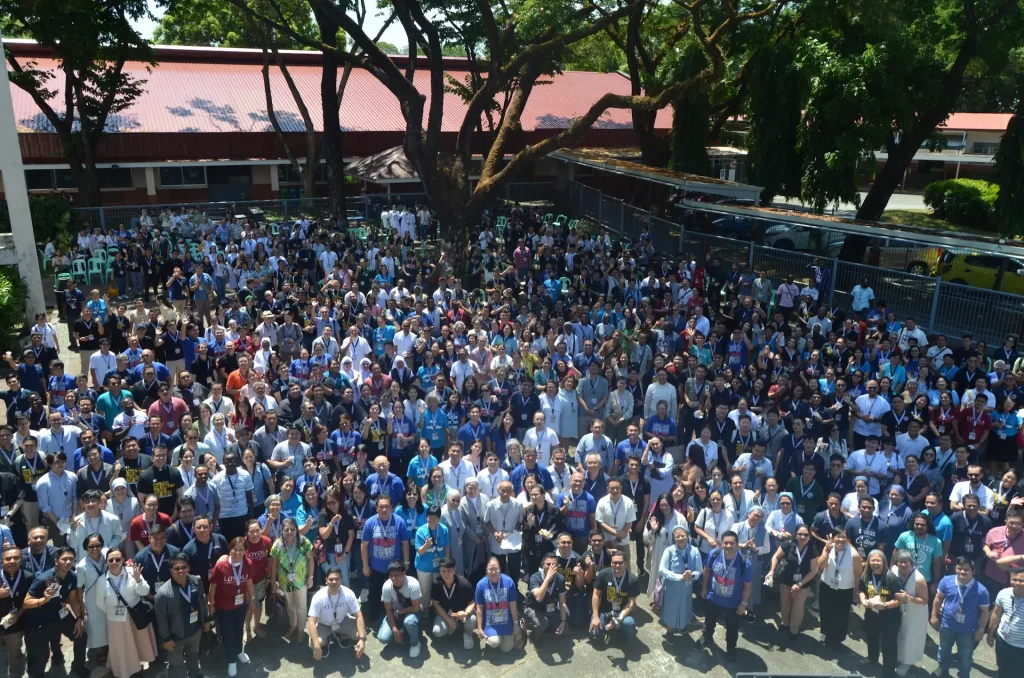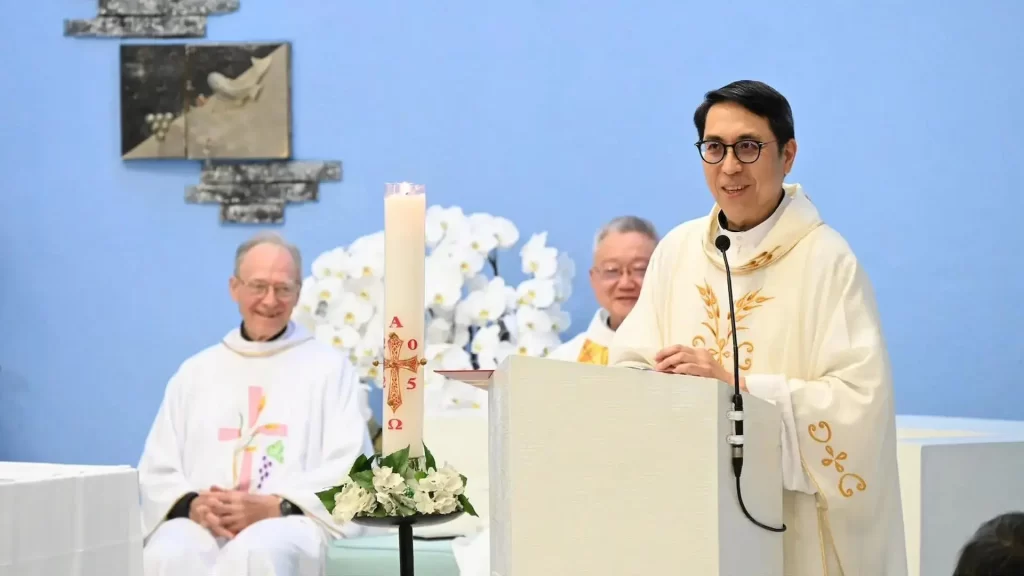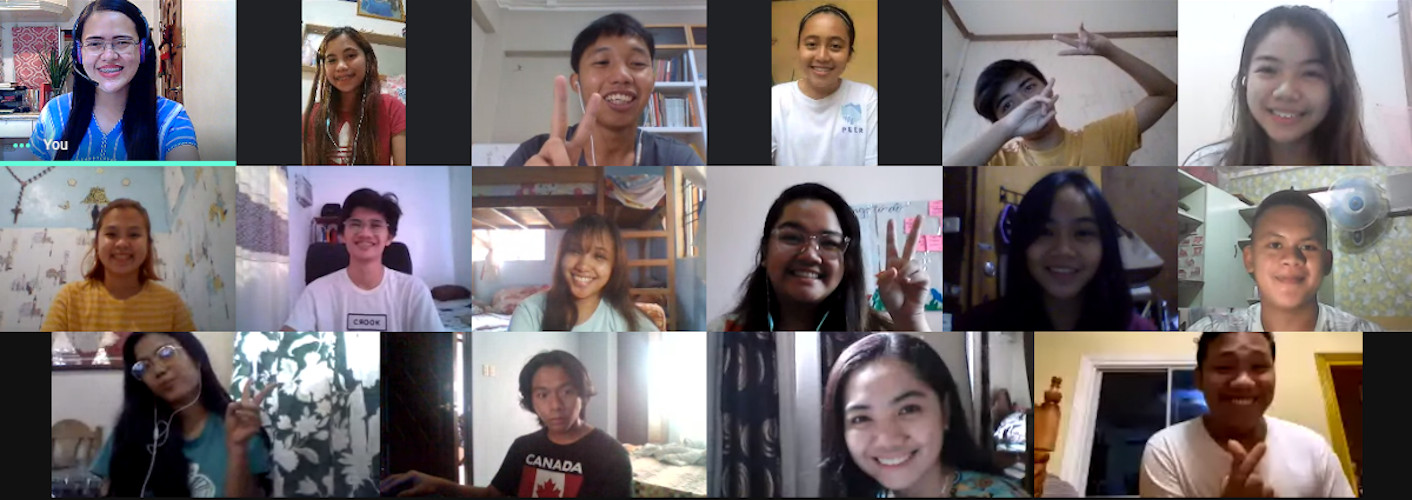
It was through my volunteer experience that I met my student Narongdet or Kavlex as I fondly call him. Through him, I understood the plight of displaced people in Karen State, Myanmar. Kavlex has been spearheading the Salween Volunteer Teacher Project since 2017: teaching children, organising donation drives, and being their voice through videos and articles about the situation of the people in the camp. His contribution has been massive despite the lean workforce and resources, and he has been doing this while finishing his own college degree. For me, Kavlex is among the few people walking the talk and living up to the challenge of being a person for others.
Covid-19 confined us within our homes, but it also opened windows of opportunities for international collaboration. Since I came home to the Philippines in 2019, I have been teaching a social formation course at AdDU. In this course, students are formed to become AdDU sui generis leaders for Mindanao and the greater society. In one of my online learning sessions, I invited Kavlex to share his Salween story to serve as an inspiration for my Filipino students in launching their own Social Love in Quarantine (SLQ) projects, with the aim of concretely demonstrating their love for others, especially those who have been terribly hit and affected by the pandemic.
One of my Filipino students asked Kavlex, “Why are you doing what you are doing? What drives you to do this project?” Kavlex and I talked a lot about his project progress and plans, but I have never asked him this question. For the first time, I finally heard one of his whys: “Because I have a deep respect for human life.” It is striking how a deep respect for human life or the lack thereof can have a huge impact on our society. On the one hand, it drives a humble student to cross borders and hike incognito deep into the forest to get to the camp. On the other, it drives individuals and corporations to ruthlessly pursue profit at the expense of the common good and the environment.
In terms of impact, my Filipino students did not disappoint either. Despite quarantine limitations and time constraints, they were able to launch their own SLQ initiatives. They created advocacy pages for the environment, mental health, and vulnerable sectors like public transport drivers, women and children, and farmers. Some of them held webinars on general physical health, mental health, and online learning. Many of them conducted donation drives for students who might get left behind because of the shift of the mode of education. All these student-led initiatives were brainstormed virtually while they were geographically separated in different parts of Mindanao. As one organisation in the Philippines says, the youth can do “online action with offline impact”.
The older generation often misunderstands the youth of today as “wokes” because of the noise they make online and even offline. But when viewed through another lens, we have never seen a generation more socially aware and engaged, creative, and innovative as this. There is no use in shutting them down just because they are young and know no better. If the youth’s task is to respond to the call of building a just and humane world, the task for the older generation is to capacitate, support, and work with them in this pursuit. We are not each other generation’s enemies. We are partners and one in mission.
My volunteer and teaching experiences made me realise that I don’t need to do grand things to contribute to the fight for social justice and the common good. Just like Kavlex and my Filipino students, having the courage to step out of the conventional, safe, and comfortable to say, “Yes” to the mission one is called for is more than enough.
What are you called to do for others today?

